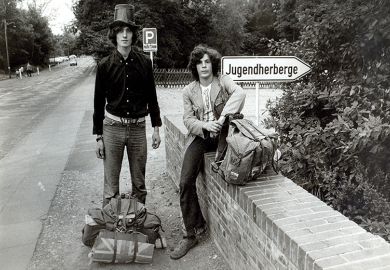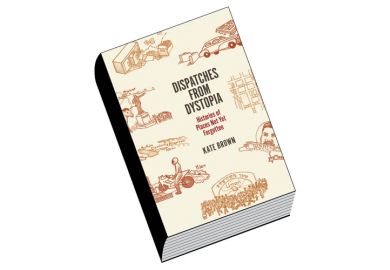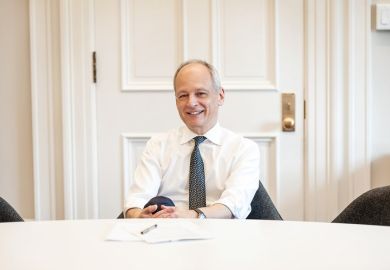These days, books on tourism are two a penny. Histories of travel are now commonplace. The sociology of tourism is well established. Even anthropologists have climbed on to the bandwagon, and joust to take the driver’s seat. In the midst of all this, what can a humanist bring to the party?
Plenty, thinks Randy Malamud, a distinguished American professor of English, who likes to get on planes. He is not a naive tourist but a “travelling humanist”. He might carry a lot of literary baggage, but he travels light. His knowledge informs his tourism. It doesn’t squash it. Unlike his predecessor Paul Fussell, who strove to fashion succinct, well-turned phrases, Malamud chooses a “run at the mouth” prose, meant to entice you by the speed of his intelligence, many sentences nested with qualifiers and digressions.
The first third of his book is a scholarly jumble of points about the experience of arriving elsewhere; his trivial pursuits, voyager’s idiosyncrasies and weightier aims. For him, travel is a chance to broaden all senses. His palate becomes more varied, more learned. His appreciation of painters grows when viewed in their native settings. Novels he teaches become more memorable when he follows in their written steps. Ever the academic, he recommends rereading a famed novel before traversing its portrayed cityscape.
He recognises the dangers of travel. Planes can carry nasty bacteria to anywhere with an international airport. But Malamud wants to be a carrier of ease rather than disease, transmitting to his readers the way travel can provoke joy, widen our aesthetics and offer a buffet of experiences.
Travel, he says, generates “novel ethical engagements”, whereby even a humdrum trip is made memorable by a chance encounter with the locals. My Irish father’s main memories of the visit he paid me in Pamplona were the sex worker who propositioned him (then in his seventies), and the priest who spontaneously detailed his church’s facade to us, then asked for a consideración.
Do we travel to visit, or only to remind ourselves why home is so comforting? Malamud says both. Our sense of elsewhere and of home feed off one another, in a sustained, mutually enriching manner. Home is so much more home because we have been elsewhere, and vice versa.
Malamud thinks that his opinions on tourism are worth reprinting, since the rest of his book – pieces on conferences and the places they were held – first came out as popular articles. They are, on the whole, an entertaining series on unexpected topics. My personal favourites were the powerful piece on the Gestapo as obsessive documenters, dogged accountants of the Holocaust they were managing; an exciting essay on boredom; and a polemical tract on the questionable privilege of seeing penguins in the wild.
In sum, travel becomes a way to find aspects of oneself by immersion in elsewhere. But this idea of discovery through self-loss is not original, nor restricted to writers. A decade ago, driving in the West of Ireland, I stopped by a pair of men holding up a wall. “Can you help please? I’m lost.” Came the reply: “Been there myself many times.”
Jeremy MacClancy is professor of anthropology at Oxford Brookes University. The second edition of his collection Exotic No More: Anthropologies for the Contemporary World will be published next spring.
The Importance of Elsewhere: The Globalist Humanist Tourist
By Randy Malamud
Intellect Books
240pp, £22.00
ISBN 9781783208746
Published 25 May 2018
Register to continue
Why register?
- Registration is free and only takes a moment
- Once registered, you can read 3 articles a month
- Sign up for our newsletter
Subscribe
Or subscribe for unlimited access to:
- Unlimited access to news, views, insights & reviews
- Digital editions
- Digital access to THE’s university and college rankings analysis
Already registered or a current subscriber?







